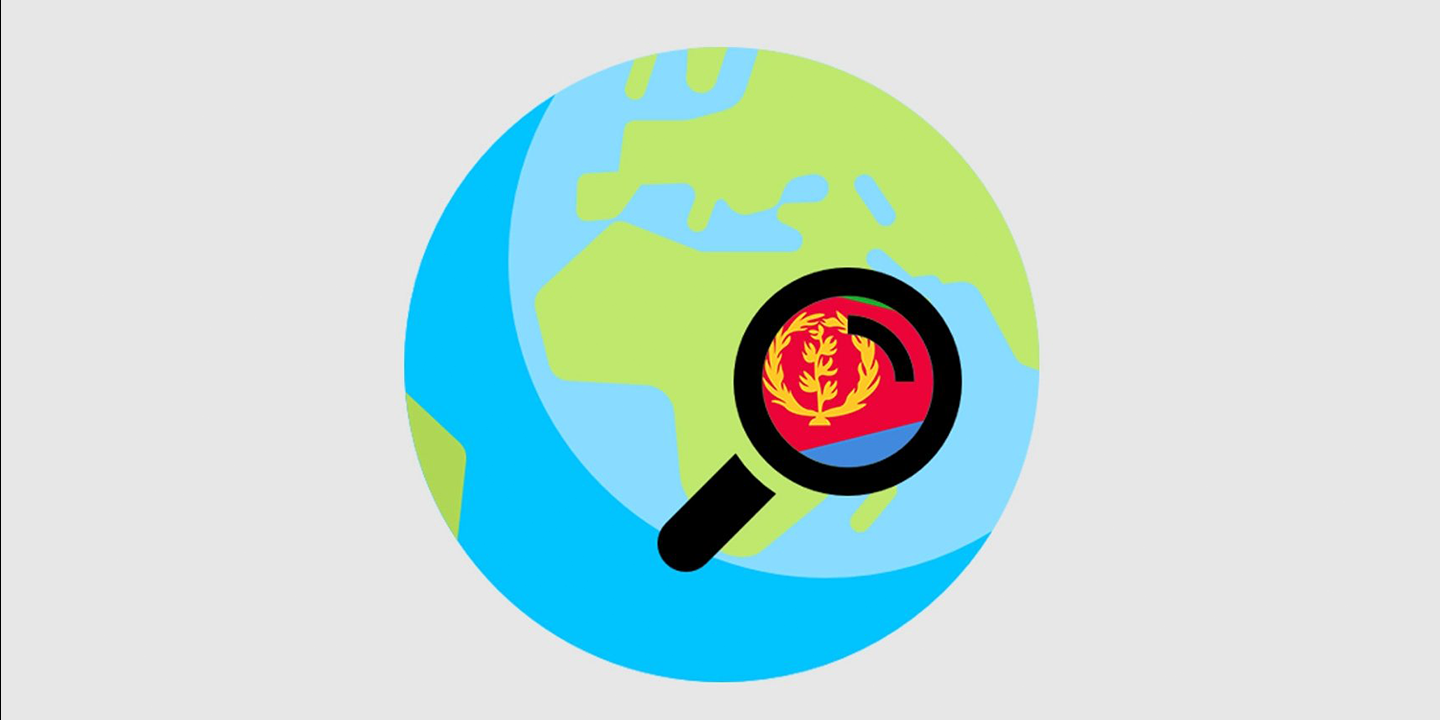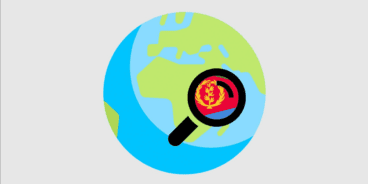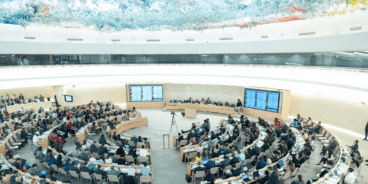

Eritrea: The annual Council resolution should outline the country’s human rights situation and extend the Special Rapporteur’s mandate
TO PERMANENT REPRESENTATIVES OF MEMBER AND OBSERVER STATES OF THE UNITED NATIONS HUMAN RIGHTS COUNCIL (GENEVA, SWITZERLAND)
Excellencies,
Ahead of the UN Human Rights Council’s 53rd session (19 June-14 July 2023), we, the undersigned non-governmental organisations, are writing to urge your delegation to support the development and adoption of a resolution that extends the mandate of the Special Rapporteur on the situation of human rights in Eritrea for one year.
Additionally, we highlight the need for the Council to put forward a strong resolution that clearly spells out and condemns the ongoing human rights violations committed by Eritrean authorities at home and abroad and the context of complete impunity that prevails.
* * *
We believe that the Council cannot follow a “business as usual” approach and that it is time for it to move beyond merely procedural resolutions that extend the Special Rapporteur’s mandate. The Council should produce a substantive assessment of Eritrea’s human rights situation, adopting strong, meaningful resolutions on the country. These resolutions should include references to the Special Rapporteur’s “benchmarks for progress” and recommendations by other UN and African bodies and mechanisms, as well as substantive paragraphs addressing violations committed by the country’s authorities inside and outside the country.
In this regard, this year’s resolution should at a minimum mention the following key human rights issues in Eritrea:
-
-
- Arbitrary arrests and detentions, including incommunicado detention of journalists and other dissenting voices, as well as prolonged detention of Djiboutian prisoners of war;
- Violations of the rights to a fair trial, access to justice, and due process;
- Enforced disappearances;
- Conscription into the country’s abusive national service system, including conscription for indefinite periods of national service, involving torture, sexual violence against women and girls, and forced labour. Since Council resolution 50/2 was adopted, in July 2022, the Eritrean Government led an intensive forced conscription campaign during which it conducted waves of roundups to identify people it considers draft evaders or deserters, punishing family members of those seeking to avoid conscription or recall. Such punishment has included arbitrary detentions and home expulsions;
- Restrictions on the media and media workers, severe restrictions on civic space, including the rights to freedoms of opinion and expression, peaceful assembly, association, movement, and non-discrimination, as well as severe restrictions to freedom of religion or belief;
- Widespread impunity for past and ongoing human rights violations; and
- The Government of Eritrea’s refusal to engage in a serious dialogue with the international community, including by cooperating with the Council, despite its election for a second term as a Council Member (2022-2024). For decades, Eritrean authorities have blatantly denied committing serious human rights violations, including in relation to the presence of Eritrean forces in Ethiopia’s Tigray region.
-
Eritrean forces have been credibly accused of grave violations of international law in Tigray, some of which may amount to war crimes and crimes against humanity, since the conflict started in November 2020. These violations, and the associated complete lack of accountability, deserve the Council’s attention.
* * *
In July 2022, the Council took a modest step toward addressing substantive human rights issues in Eritrea. For the first time since 2018, it went beyond a one-page resolution extending the Special Rapporteur’s mandate. It did so by referring to the benchmarks for progress Special Rapporteurs identified, thereby outlining a path for human rights reforms. These benchmarks include strengthening the rule of law, reforming the national military service, protecting fundamental freedoms, addressing pervasive sexual and gender-based violence, and strengthening cooperation with international and African human rights bodies.
Resolution 50/2 also extended the Special Rapporteur’s mandate for a year, which was the main purpose of Eritrea-focused resolutions adopted in 2019, 2020, and 2021.
Although it went further than these three resolutions, which were merely procedural and contained no substantive assessment of Eritrea’s situation, resolution 50/2 failed to clearly describe and condemn human rights violations Eritrean authorities are responsible for. It failed to reflect the situation in the country in the way Council resolutions did prior to 2019, as well as the atrocities Eritrean forces have committed in Ethiopia’s Tigray region since armed conflict broke out, in November 2020. Yet violations Eritrean authorities commit at home and abroad are two sides of the same coin, and the total closure of the civic space enables these violations to continue with impunity.
Ahead of the Council’s 50th session, over 40 civil society organisations urged the Council to maintain its scrutiny of Eritrea’s human rights situation and to strengthen its annual resolution with a view to bringing it in line with pre-2019 resolutions. We welcome the inclusion, in resolution 50/2, of a call on the Government of Eritrea to “[commit] to making progress on the recommendations included in [the Special Rapporteur’s] reports and on the benchmarks and associated indicators proposed in 2019.” We stress, however, that resolutions on Eritrea should fully reflect the country’s human rights situation.
In 2016, the Commission of Inquiry on Eritrea found that there are “reasonable grounds to believe” that crimes against humanity have been committed in the country since 1991 and that Eritrean officials have committed and continue to commit the crimes of enslavement, imprisonment, enforced disappearance, torture, other inhumane acts, persecution, rape, and murder. The international community and the African Union have failed to ensure adequate follow-up for these findings. Since 2019, the Human Rights Council has conveyed the impression to victims, survivors, and their families that it has given up on the accountability agenda.
Yet no Eritrean official has been held criminally accountable, and Eritrea’s human rights situation has not fundamentally changed. All the key issues identified in pre-2019 Council resolutions on the country and by independent experts and organisations remain valid. For instance, in his 2022 report, the Special Rapporteur, Dr. Mohamed Abdelsalam Babiker, noted that “the vast majority of the recommendations made by human rights mechanisms […], as well as the recommendations from the country’s universal periodic review in 2019, remain unimplemented.” He added that “the persistent human rights crisis in Eritrea deepened during the reporting period” and identified several worrying trends.
Similarly, in the statement delivered during the enhanced interactive dialogue on Eritrea held on 6 March 2023, the Deputy UN High Commissioner for Human Rights, Ms. Nada Al-Nashif, highlighted that “[t]he human rights situation in Eritrea remains dire and shows no sign of improvement. It continues to be characterised by serious human rights violations.” She added: “It is alarming that all these human rights violations are committed in the context of complete impunity. Eritrea has not taken any demonstrable steps to ensure accountability for past and ongoing human rights violations.”
* * *
The Human Rights Council should allow the Special Rapporteur to pursue his work and the Office of the UN High Commissioner for Human Rights (OHCHR) to deepen its engagement with Eritrea.
At its 53rd session, the Council should adopt a resolution:
-
-
- Extending the mandate of the Special Rapporteur on Eritrea for a period of one year;
- Urging Eritrea to cooperate fully with the Special Rapporteur by granting him access to the country, in accordance with its obligations as a Council Member;
- Condemning the ongoing human rights violations committed by Eritrean authorities at home and abroad and the context of complete impunity that prevails;
- Welcoming the benchmarks for progress in improving the situation of human rights and associated indicators and recommendations, as well as recommendations formulated by other UN and African human rights bodies and mechanisms, and calling on Eritrea to develop an implementation plan to meet the benchmarks for progress, in consultation with the Special Rapporteur and OHCHR; and
- Requesting the High Commissioner and the Special Rapporteur to present updates on human rights concerns in Eritrea and on accountability options for serious violations at the Council’s 55th session in an enhanced interactive dialogue that also includes the participation of civil society and requesting the Special Rapporteur to present a comprehensive written report at the Council’s 56th session and to the General Assembly at its 78th
-
We thank you for your attention to these pressing issues and stand ready to provide your delegation with further information.
Sincerely,
- Action by Christians for the Abolition of Torture in the Central African Republic (ACAT-RCA)
- AfricanDefenders (Pan-African Human Rights Defenders Network)
- The America Team for Displaced Eritreans
- Amnesty International
- Burkinabè Human Rights Defenders Coalition (CBDDH)
- Burundian Human Rights Defenders Coalition (CBDDH)
- Cabo Verdean Network of Human Rights Defenders (RECADDH)
- CIVICUS
- Coalition of Human Rights Defenders-Benin (CDDH-Bénin)
- Coordination of Human Rights Organizations (CODDH) – Guinea
- CSW (Christian Solidarity Worldwide)
- DefendDefenders (East and Horn of Africa Human Rights Defenders Project)
- Eritrean Afar National Congress
- Eritrea Focus
- Eritrean Coordination for Human Rights
- Eritrean Law Society
- Geneva for Human Rights – Global Training (GHR)
- Global Centre for the Responsibility to Protect (GCR2P)
- Global Initiative to Empower Eritrea Grassroot Movement
- The Horn of Africa Civil Society Forum (HoACSF)
- Hawai’i Institute for Human Rights
- Human Rights Concern – Eritrea (HRCE)
- Human Rights Defenders Network – Sierra Leone
- Human Rights Watch
- Institut des Médias pour la Démocratie et les Droits de l’Homme (IM2DH) – Togo
- International Service for Human Rights (ISHR)
- Ivorian Human Rights Defenders Coalition (CIDDH)
- Lawyers’ Rights Watch Canada
- Libyan Human Rights Clinic (LHRC)
- Network of NGOs for the Promotion and Defence of Human Rights (RONGDH) – Central African Republic
- Nigerien Human Rights Defenders Network (RNDDH/NHRDN)
- One Day Seyoum
- Togolese Human Rights Defenders Coalition (CTDDH)
- Vision Ethiopian Congress for Democracy (VECOD)
- World Organisation Against Torture (OMCT)
Related Content


